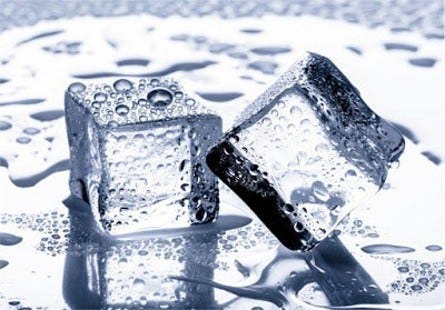Hot Water Freezing Faster Than Cold Water: The Mpemba Effect Explained
Written on
Understanding the Mpemba Effect
It challenges our common belief, but there are circumstances under which hot water can freeze more quickly than cold water, a phenomenon that scientists have struggled to fully explain. This surprising behavior, known as the Mpemba effect, was first observed by a Tanzanian student named Erasto Mpemba in 1963. While in a cooking class, Mpemba noticed that a hot ice cream mixture froze more swiftly than a cold one. He later posed this question to physicist Dr. Denis Osbourne, who verified Mpemba's observation through experiments, leading to the publication of their findings in 1969.
Historical Context
Interestingly, Mpemba was not the first to note this occurrence. Philosophers like Aristotle in the 4th century B.C., along with Rene Descartes and Sir Francis Bacon, also documented similar phenomena. Despite the initial confirmation of the Mpemba effect, scientists were left perplexed about the underlying reasons and the specific conditions that prompted it. Various theories emerged, suggesting explanations such as increased evaporation of hot water reducing its volume, the formation of a frost layer around cold water, or variations in solutes influenced by temperature.
Conditions for the Mpemba Effect
The Mpemba effect doesn't occur universally; often, cold water will freeze faster than hot water. However, under certain specific conditions, this effect is observed. Recent research by a team of physicists at Nanyang Technological University in Singapore has shed light on the mystery, attributing the Mpemba effect to the unique chemical bonds within water molecules.
Chemical Bond Dynamics
A water molecule consists of one oxygen atom and two hydrogen atoms, connected by covalent bonds (which involve shared electrons). Additionally, water molecules are linked to one another through weaker hydrogen bonds.

When water is heated, its density decreases, and the molecules start to separate. This separation stretches the weaker hydrogen bonds, allowing the covalent bonds to release stored energy more efficiently. Consequently, the warmer water cools at a faster rate than cold water, leading to the possibility of it freezing quicker under optimal conditions.
Consider the analogy of a rubber band: when stretched, it stores energy (akin to heat), and when released, that energy is transferred to the environment. In contrast, cold water does not release energy in the same manner, which can explain the Mpemba effect.
Continued Exploration
The Mpemba effect continues to be a topic of debate among scientists, demonstrating how even seemingly simple observations can remain enigmatic for centuries.
Video Explanation: How Can Hot Water Freeze Faster Than Cold Water?
Explore the fascinating concept of the Mpemba effect further in this video that delves into how hot water can freeze faster than cold water under specific conditions.
Video Discussion: The Heated Debate on the Mpemba Effect
Join in on the discussions surrounding the Mpemba effect, featuring various perspectives on whether hot water indeed freezes faster than cold water.
For more intriguing insights, continue your journey with "The Wonderful World of Completely Random Facts" series on Medium. This article originally appeared in Knowledge Stew. Discover additional fascinating facts in the four volumes of Knowledge Stew: The Guide to the Most Interesting Facts in the World.